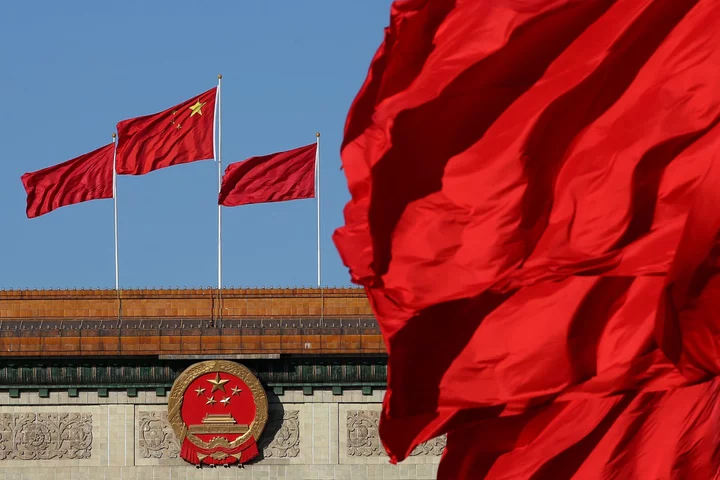Perceptions of China abroad are souring largely because of its foreign policy decisions, according to a survey from the Pew Research Center, which also found a lack of confidence in President Xi Jinping.
Majorities in 15 of the 24 nations surveyed held an unfavorable opinion of China, with negative ratings at record highs in 10 of them.
Japan and Australia had the highest number of people expressing discontent, at 87%. Beijing has been criticizing Tokyo over its plans for discharging wastewater from the wrecked Fukushima nuclear plant, while China and Australia are just getting over a spat that ranged from the origins of Covid-19 to trade.
Pew said about three-quarters of all respondents to the survey conducted from February to May “think China does not take into account the interests of other countries in its foreign policy,” while more than half “say China interferes in the affairs of other nations a great deal or fair amount.”
Some four-fifths of US respondents held a negative view of China. Washington and Beijing have been at odds over a range of issues, especially Taiwan and technology. The Biden administration has rallied allies to impose controls on exports of high-end chip equipment to China, largely to curb its military ambitions.
Read more: Xi Protege’s Sudden Removal Adds to Rough Start for Third Term
Last month, China said it would place restrictions on exporting two metals that are crucial to parts of the semiconductor, telecoms and alternative energy industries. The move appeared aimed at giving Beijing leverage as it pushes the White House to lift its curbs.
China has come in for widespread criticism over its partnership with Russia, which it has maintained despite Vladimir Putin’s invasion of Ukraine last year. Critics also say Beijing has restricted political freedoms in Hong Kong, curbed religious activities in Tibet and Xinjiang, and stepped up intimidation of Taiwan.
The US will bar Hong Kong’s leader, John Lee, from attending a major economic summit in the US this fall after earlier sanctioning him over the crackdown, the Washington Post reported, citing unidentified US officials familiar with the matter.
The news comes just as Hong Kong is set to decide whether to ban a controversial protest song from its internet Friday, a move that could force Western tech firms to reconsider their presence in the finance hub.
Chinese diplomats have criticized similar Pew surveys in the past, saying they don’t represent the entire international community. They also say that the nation’s military is purely for defensive purposes.
Read more: Senate Votes to Target China Investments Via Defense Bill
Three-quarters of the Pew survey respondents said they had little or no confidence in Xi to do the right thing. Uncertainty over Xi’s policies was underscored this week when the government removed his handpicked foreign minister, Qin Gang, after a one-month disappearance without saying why.
Still, Xi was viewed more favorably in South Africa, Nigeria and Kenya. Those countries are all members of Beijing’s Belt and Road Initiative. Under the infrastructure program, China has extended about $900 billion over the past decade around the world, including in Africa.
Also, at least half of the people in six middle-income countries said Chinese investment helped their economies.
(Updates with more details and context.)

